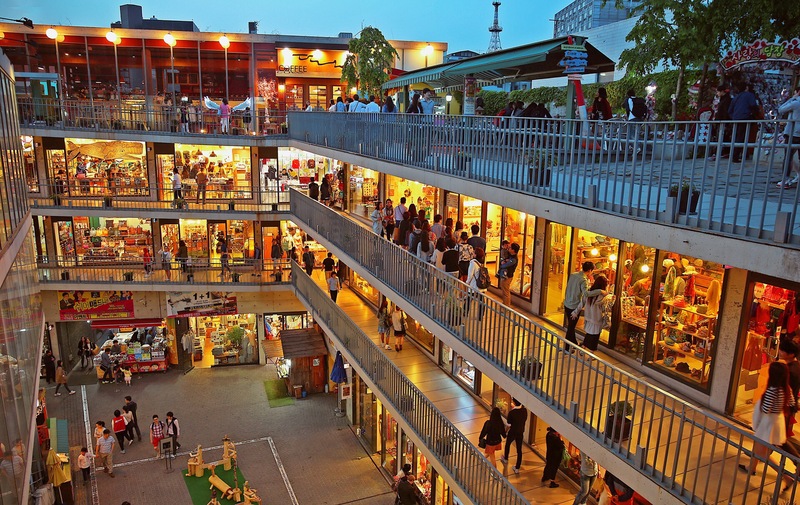Insadong Seoul Travel Guide: Where Tradition Meets Culture
Introduction to Insadong
🏮 Insadong: A Tour Guide’s Guide to Seoul’s Cultural Heart
Welcome to Insadong, Seoul’s timeless cultural district! As your virtual tour guide, I’ll take you through the charming alleys, traditional tea houses, calligraphy shops, art galleries, and centuries-old markets that make this one of Korea’s most beloved neighborhoods.

Located just minutes from Gyeongbokgung Palace and Bukchon Hanok Village, Insadong is where past and present Korea harmoniously blend. Whether you're looking to explore Korean arts, try street snacks, or shop for authentic souvenirs, Insadong is the perfect place to start.
📍 Where Is Insadong?
Insadong is centrally located in Jongno-gu, one of Seoul’s oldest and most historically rich districts. The neighborhood is easily accessible by subway:
Subway: Jonggak Station (Line 1) or Anguk Station (Line 3)
Walking distance from: Gyeongbokgung Palace, Bukchon Hanok Village, Jogyesa Temple
Insadong is best explored on foot, with its main street (Insadong-gil) branching into dozens of side alleys filled with hidden gems.
🏯 A Stroll Through History: What Makes Insadong Special?
Insadong dates back to the Joseon Dynasty (1392–1897), where it served as a center for painters, scholars, and craftsmen. Today, it's still home to Korean calligraphy, antiques, traditional art, and tea culture.
What sets Insadong apart is its preservation of Korean identity in the heart of modern Seoul.
🖌️ Top Things to Do in Insadong
1. Explore Traditional Craft Shops
Insadong is the best place to find handmade Korean items:
Hanji (Traditional Paper): Visit shops like Hanji Chueok to see beautiful journals, lamps, and crafts.
Ceramics and Pottery: Look for porcelain tea sets, celadon wares, or hand-thrown vases.
Calligraphy Tools: Brushes, ink stones, and folding screens with Hangul script.
Many stores allow you to watch artisans at work or even try crafting something yourself.
2. Relax in a Traditional Korean Tea House
Insadong is famous for its cozy, wooden teahouses hidden in the back alleys.
Top Recommendations:
Tteuran Tea House: A serene hanok setting with yuzu tea and rice cakes.
O'sulloc Tea House: Offers premium Jeju green tea and modern desserts.
Moonbird Doesn’t Cry: A quirky favorite among locals and travelers.
Try: Omija (five-flavor berry tea), Jujube tea, or traditional Korean sweets like yakgwa.
3. Visit Ssamziegil: Insadong’s Art & Culture Complex
Ssamziegil is a modern shopping arcade built in a spiraling ramp structure. It’s a must-visit for:
Indie art galleries and workshops
Unique souvenirs (handmade soaps, accessories, artwork)
Rooftop photo zones and message walls
Don’t miss the Poop Cafe—a quirky dessert café themed around toilet humor and sweet red bean buns.
4. Street Food and Snacks You Can’t Miss
Insadong’s street food scene is flavorful and fun! Here are a few must-tries:
Hotteok: Sweet syrup-filled pancakes, crispy on the outside
Tteokgalbi Skewers: Grilled marinated beef patties on a stick
Dragon’s Beard Candy: Handmade spun candy filled with peanuts
Gilgeori Toast: Korean-style sweet and savory street toast
Tip: Look for vendors with long queues—they're usually the best.
5. Admire Korean Fine Arts and Galleries
Insadong isn’t just about souvenirs—it's an art hub, too. Visit:
Kyung-In Museum of Fine Art: Tranquil gardens and rotating exhibits
Gallery Hyundai: Modern Korean art from major names
Tong-In Gallery: Traditional and contemporary fusion
Art fans should also check out nearby art streets like Samcheong-dong and Bukchon.
🧘♀️ Cultural Experiences in Insadong
Want to experience Korean traditions instead of just observing them?
1. Hanbok Rental and Photoshoots
Rent a Hanbok (traditional Korean attire) and walk around Insadong or nearby palaces.
Shops near Anguk Station offer a wide range
Great photo opportunities in front of murals or teahouses
2. Traditional Craft Workshops
Join a hands-on class to make:
Calligraphy scrolls
Hanji fans
Korean knots (maedeup)
Ceramic painting
Check with Ssamziegil or local studios—many offer English instruction.
🛍️ What to Buy in Insadong (Souvenir Guide)
Looking for something memorable to bring home? Insadong is ideal for authentic Korean gifts:
Tea sets and cups
Traditional masks (Tal)
Hanbok-inspired fashion items
Hand fans and bookmarks
Hangul wall art
Jeju sea salt products and soaps (yes, often found in Insadong!)
Prices vary, but you can find both affordable souvenirs and high-end artisan crafts.
🏨 Where to Stay Near Insadong
1. Budget Options
Makers Hotel: Stylish and affordable
Hostel Haru: Clean, modern, great location
2. Mid-Range & Boutique
Orakai Insadong Suites: Spacious with kitchenettes
Sunbee Hotel: Comfort and walkable access
3. Luxury
Four Seasons Seoul: 10 mins by taxi, world-class experience
Staying near Insadong also means you can walk to major attractions like Jogyesa Temple, Gyeongbokgung, and Cheonggyecheon Stream.
🧭 Nearby Attractions
Make Insadong your starting point to explore central Seoul:
Bukchon Hanok Village: Walk through preserved traditional homes
Gyeongbokgung Palace: Witness the changing of the royal guards
Jogyesa Temple: Zen Buddhist temple known for lantern festivals
Cheonggyecheon Stream: Urban renewal project perfect for a relaxing stroll
📅 Best Time to Visit Insadong
Spring (April–May): Cherry blossoms and street performances
Autumn (September–October): Fall foliage, crisp weather, cultural festivals
Winter (December): Cozy tea houses and holiday lights
Avoid: Mid-summer afternoons (hot and crowded)
🧳 Insider Travel Tips from Your Tour Guide
Go early: Mornings are quieter and perfect for photos
Bring cash: Many small shops still prefer cash over card
Check temple and gallery hours: Most close around 6–7 PM
Learn a few Korean phrases: Simple greetings and “how much?” go a long way
📖 Conclusion: Why Insadong Belongs on Your Seoul Itinerary
Insadong isn’t just a street—it’s a living museum of Korea’s heritage. From sipping traditional tea in a 100-year-old house to picking out hand-painted ceramics or hearing the quiet rustle of hanji paper, Insadong captures the cultural soul of Korea.
Whether you’re a first-time visitor or returning to Korea, a walk through Insadong is a journey into the heart of Korean tradition—with modern comfort and charm. I hope this guide helps you uncover the stories and beauty that make this neighborhood unforgettable.

